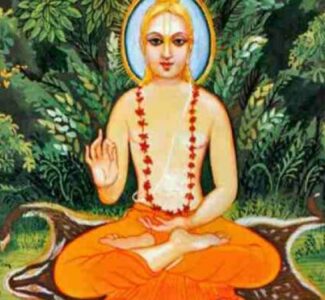
Sage Kapila
Kapila is a Vedic–Itihāsa–Purāṇic sage, not a historically datable figure like Ashoka. Traditional Hindu chronology places him in a very ancient period, well before the Buddha. Scholarly estimates (approximate): c. 7th–10th century BCE → based on linguistic and philosophical layers of early Sāṅkhya ideas Traditional Hindu sources place him much earlier, even pre-Mahābhārata, s.....
Read More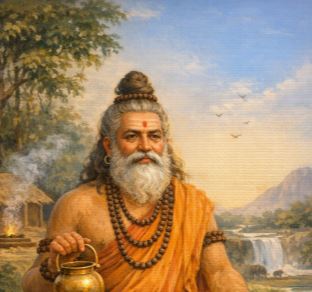
MAHARṢI AGASTYA
Sage, Civilizational Integrator, Scientist-Ṛṣi Agastya is one of the most revered sages of the Vedic tradition and is counted among the Saptarṣis in several lineages. Birth & Lineage Father: Sage Pulastya (one of Brahmā’s mind-born sons) Mother: Born from a kumbha (pot) — symbolizing non-biological, tapas-born origin Wife: Lopāmudrā (herself a Rigvedic ṛṣikā) Son: Dṛḍ.....
Read More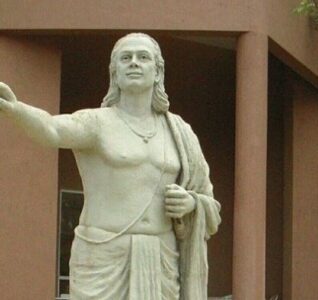
Aryabhata I
Aryabhata ( ISO: Āryabhaṭa) or Aryabhata I (476–550 CE) was the first of the major mathematician-astronomers from the classical age of Indian mathematics and Indian astronomy. His works include the Āryabhaṭīya (which mentions that in 3600 Kali Yuga, 499 CE, he was 23 years old) and the Arya-siddhanta. For his explicit mention of the relativity of motion, he also qualifies as a major ea.....
Read MoreWomen of the Rigveda
1. Lopāmudrā Background: Wife of Sage Agastya; princess by birth. Contribution: RV 1.179 Theme: Marriage, mutual desire, balance between asceticism and household life. Significance: One of the earliest articulations of female agency and marital dialogue in sacred literature. 2. Ghoṣā Background: Daughter of Kakshivan; suffered from illness (possibly leprosy). Contribution: RV 10.39–4.....
Read More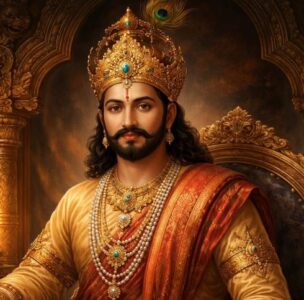
King Bhoja
King Bhoja (Paramāra Dynasty) 🗓️ Birth & Reign Birth: c. 1000 CE (exact date unknown; historians agree it was around the turn of the 11th century) Reign: c. 1010–1055 CE Death: c. 1055 CE Background Dynasty: Paramāra (Parmar) dynasty Kingdom: Malwa (present-day Madhya Pradesh) Capital: Dhāra (modern Dhar) Father: King Sindhurāja Bhoja was not just a rule.....
Read More
C. Radhakrishna Rao
C. Radhakrishna Rao retired at the age of sixty and went to live with his daughter in America along with his grandchildren. There, at the age of 62, he became a professor of statistics at the University of Pittsburgh and at the age of 70, he became the head of the department at the University of Pennsylvania. US citizenship at the age of 75. National Medal For Science at the age of 82, a White H.....
Read More
Ulugh Beg Mirza
Mongol astronomer and mathematician who, although the only important Mongol scientist, was the greatest astronomer of his time. Pursuing this interest he built an observatory (begun in 1428) at Samarkand. In his observations he discovered a number of errors in the computations of the 2nd-century Alexandrian astronomer Ptolemy, whose figures were still being used. His star map of 994 stars was the .....
Read More
Muhammad ibn Muhammad ibn al-Hasan al-Tūsī
Muhammad ibn Muhammad ibn al-Hasan al-Tūsī, better known as Nasir al-Din al-Tusi, was a Persian polymath, architect, philosopher, physician, scientist, and theologian. Nasir al-Din al-Tusi was a well published author, writing on subjects of maths, engineering, prose, and mysticism. He made invaluable contributions to astronomy and later served as a scientific advisor of the Mongols. One of his n.....
Read More
Abu Rayhan Muhammad ibn Ahmad al-Biruni
Abu Rayhan Muhammad ibn Ahmad al-Biruni commonly known as al-Biruni, was a Khwarazmian Iranian scholar and polymath during the Islamic Golden Age. He has been called variously the "founder of Indology", "Father of Comparative Religion", "Father of modern geodesy", and the first anthropologist. Abu Rayhan al-Biruni was one of the finest scholars the world has ever produced. He has made immense cont.....
Read More
Abu Ali Al-Hussein Ibn Abdullah Ibn Sina
Abu Ali Al-Hussein Ibn Abdullah Ibn Sina, known in the West as Avicenna, was one of the most eminent Muslim physicians and philosophers of his days whose influence on Islamic and European medicine persisted for centuries.Renowned as father of early modern medicine, Avicenna was an illustrious Persian polymath. He is specifically distinguished for his contributions in the fields of medicine and Ari.....
Read More
al-Khwārizmī
al-Khwārizmī, Muslim mathematician and astronomer whose major works introduced Hindu-Arabic numerals and the concepts of algebra into European mathematics. Latinized versions of his name and of his most famous book title live on in the terms algorithm and algebra. Few details of al-Khwārizmī's life are known with certainty. Ibn al-Nadim gives his birthplace as Khwarazm, a region that was part .....
Read More
Archimedes of Syracuse
Archimedes of Syracuse was a Greek mathematician, physicist, engineer, astronomer, and inventor and weapons-designer from the ancient city of Syracuse in Sicily. Archimedes is known as the Father Of Mathematics. Archimedes was serving the King Hiero II of Syracuse by solving mathematical problems and by developing interesting innovations for the king and his army. Archimedes of Syracuse was a Gree.....
Read More
Euclid
Euclid, sometimes called Euclid of Alexandria to distinguish him from Euclid of Megara, was a Greek mathematician, often referred to as the "founder of geometry" or the "father of geometry". He was active in Alexandria Mediterranean port city in Egypt, during the reign of Ptolemy I (323–283 BC). Greek mathematician Euclid, sometimes called Euclid of Alexandria to distinguish him from Euclid of .....
Read More
Hippocrates
Born: 460 BC Kos, Greece Died: 377 BC Larissa, Greece Hippocrates is regarded as the father of Western medicine. He systematised medical treatments, disentangling them from religion and superstitions. He trained physicians in his methods and, with his followers, is responsible for authoring a large body of medical textbooks Hippocrates was born in 460 BC (the first year of the 80th Olympiad) on .....
Read More
Anaximander
Lived c. 610 BC – c 546 BC. 2,600 years ago, Anaximander became the first person in recorded history to recognize that the earth exists as a solitary body which does not need to rest on top of anything else. Fascinated by the structure of the earth, he produced one of the first ever maps of the world. He did not restrict his thinking to astronomy and geography. He also theorised about evolution.....
Read More
Pythagoras
Pythagoras, Greek philosopher, mathematician, and founder of the Pythagorean brotherhood that, although religious in nature, formulated principles that influenced the thought of Plato and Aristotle and contributed to the development of mathematics and Western rational philosophy. Pythagoras Philosopher Pythagoras, Greek philosopher, mathematician, and founder of the Pythagorean brotherhood that, .....
Read More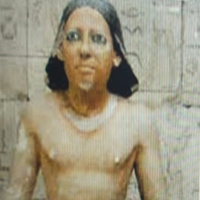
Ahmes
Ahmes was an ancient Egyptian scribe who lived towards the end of the Fifteenth Dynasty and the beginning of the Eighteenth Dynasty, He wrote the Rhind Papyrus - one of the oldest known mathematical documents. Ahmes is the scribe who wrote the Rhind Papyrus (named after the Scottish Egyptologist Alexander Henry Rhind who went to Thebes for health reasons, became interested in excavating and purcha.....
Read More
Madhava of Sangamagrama
Madhava of Sangamagrama is an Indian mathematician from the 14th century and is also known to be a great astronomer.Very little is known about the early education of Madhava, but his great contributions in mathematics and astronomy are still widely acknowledged. He is famous for establishing the Kerala School of Astronomy and Mathematics. Many of the mathematicians who came after Madhava and worke.....
Read More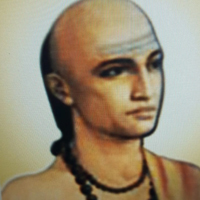
Shripati
Indian astronomer-astrologer and mathematician whose astrological writings were particularly influential. Sripati was a follower of the teaching of Lalla writing on astrology, astronomy and mathematics. His father was Naga Deva Bhatta and grandfather was Keshava Deva Bhatta, although Ṡripati’s last name or title name was not mention. His mathematical work was undertaken with applications to as.....
Read More
Nāgārjuna
Nāgārjuna was an Indian metallurgist and alchemist. Legends recorded by Al-Biruni in the eleventh century say that he was born in the village of Daihak near in Gujarat "one hundred years ago," i.e., at the start of the tenth century. Born: 931 AD, Shree Somnath Jyotirling Temple, Somnath He wrote the treatise Rasaratnakara that deals with preparations of rasa (mercury) compounds. It gives a su.....
Read More

